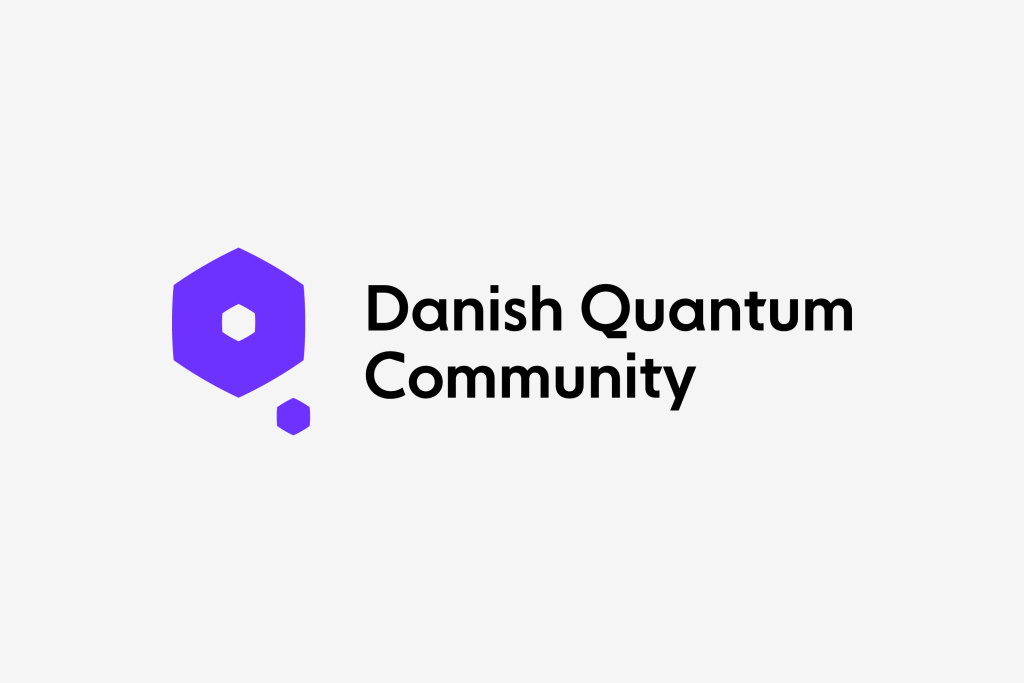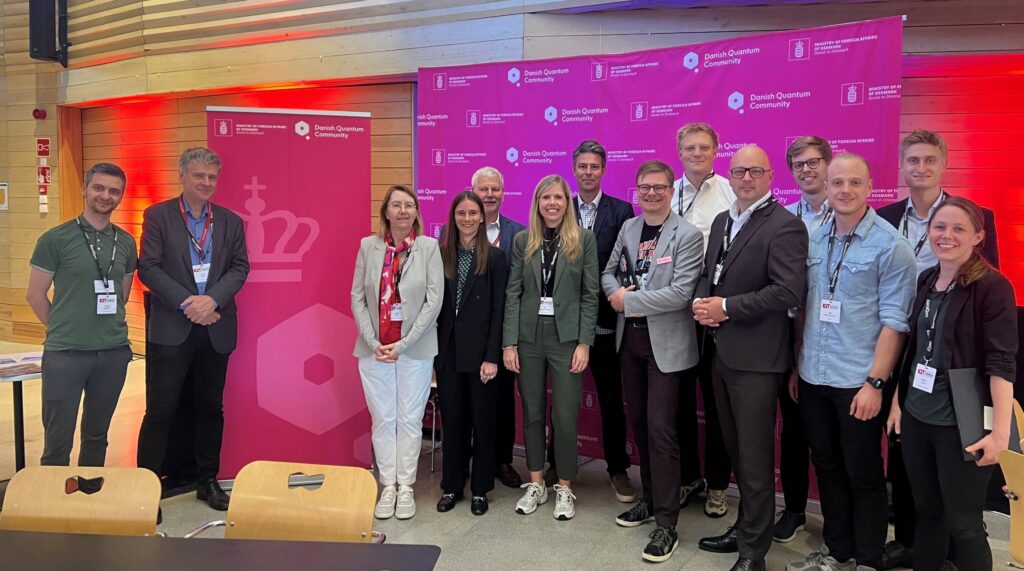On April 15-16, 2024, we partnered up with Centre for Quantum Mathematics (QM) at University of Southern Denmark (SDU) to host our annual Scientific Quantum Conference.
The conference acts as a meeting point for the quantum research community in Denmark and as an occasion to celebrate the Danish strongholds within quantum research across physics, mathematics, photonics, and more.
This year, we gathered 100 quantum researchers for a two-day program with 17 speakers from 9 different departments at Danish universities. Thank you to everyone who joined us at SDU!
Collaboration is crucial to pave the way for new research breakthroughs and maintain a position as a global leader within quantum research
Based on the legacy of Niels Bohr, Denmark has historically had a strong research community in the field of quantum mechanics and quantum technology. We have continuously succeeded in leveraging this foundation and today, Denmark has several research strongholds across various academic disciplines – from physics and chemistry to mathematics – within quantum.
The world of quantum technology holds immense potential for technological innovation. And it is clear that research – all the way from basic research on foundational theories to applied research – will play a key role in realizing this potential in the future. With our Scientific Quantum Conference, we want to celebrate and promote the strong quantum research community in Denmark.
Further, we believe that collaboration across academic fields, across research groups and across universities is crucial to ensure that we maintain a strong innovative spirit at Danish universities to pave the way for new research breakthrough and, consequently, new quantum solutions. We were therefore thrilled to host so many representatives of our research community, with participants coming from all parts of Denmark and even from abroad.
Conference Day 1
The first day of the conference kicked off with a series of presentations and pitches highlighting research from all over the country:
Professor Jaco van de Pol from Aarhus University gave a presentation on layout-aware quantum circuit optimization as a method to enable running quantum algorithms with more precision in the near future. The presentation focused on how to optimize CNOT circuits and addressed equivalence and optimization criteria.
Associate Professor Albert Werner from University of Copenhagen spoke on the importance of scalability for analogue quantum simulators, proposing a theoretical framework that is stable under noise, consistent with Hamiltonian encodings from complexity theory, and allows for experiments.
Assistant Professor Shan Shan from University of Southern Denmark gave a talk on using Gaussian Boson Sampling for approximating Gaussian weighted integrals. Shan Shan presented two variance reduction techniques using GBS sampled to reduce sample size compared to Monte Carlo methods.
Associate Professor Jonas Schou Neergard-Nielsen from DTU Physics presented his work on quantum computing with continuous-variable cluster states with a focus on photonic measurement-based quantum computing over continuous variables.
Associate Professor Morten Kjærgaard from University of Copenhagen shared his work on superconducting qubits and recent work on establishing two platforms for superconducting qubits, including an update on the equipment and facilities at NQCP in Copenhagen.
Assistant Professor Jean-Baptiste Béguin from University of Copenhagen gave a presentation on quantum optics with cold atoms and nano-photonics and shared his work towards integration of neutral atom-based quantum simulators with nano-photonic crystal waveguides.
We also had the pleasure of hosting two pitches from the Innovation Fund Denmark’s new Grand Solutions projects:
Professor Jørgen Ellegaard Andersen from University of Southern Denmark presented the TopQC2X project which will develop and apply new topological tools for photonics quantum computing and grow applications for green energies, climate modeling, and other application areas.
Professor Ulrik Lund Andersen from DTU presented the CyberQ project which seeks to advance cybersecurity and bring quantum key distribution (QKD) to the next level with continuous variable quantum cryptography. The project will run from 2024-2027 with 7 partners.
We rounded off day 1 of the conference with an inspiring pre-dinner talk by write Tor Nørretranders and a free conference dinner for participants.
Conference day 2
The second conference day brought presentations from 6 different universities and from a wide range of research areas.
Associate Professor Antonio Jiménez-Pastor and Postdoc Max Tschaikowski from Aalborg University jointly presented work on efficient simulations of quantum circuits via constrained biosimulation for stochastic and deterministic systems. They further provided an algorithm to compute constraint biosimulation o yield coarsest reductions.
Senior Researcher Elizaveta Semenova from DTU gave a talk on scalable quantum photonic devices for the telecom C-band, showcasing the potential for scalable integration of quantum dot-based photonic devices with well-developed photonics platforms.
Assistant Professor Stefano Paesani from University of Copenhagen spoke on photonic quantum computing with quantum emitters, sharing the experimental progress of the systems and how they can be used when implementing fault-tolerant quantum computing.
PhD student Søren Skovgaard Balling from Aarhus University presented research on quantum simulation with ultracold atoms and the suitability of ultracold quantum gases as a platform for such simulations.
Professor Gemma Solomon from University of Copenhagen gave a talk on the opportunities for life science applications of quantum computing and how the barriers of entry into the field of quantum computing can be removed to enable information sharing and collaboration across academic disciplines.
Postdoctoral Researcher Esra Yeniaras from the IT University of Copenhagen presented her work on implementing the NIST post-quantum cryptography algorithms, exploring use cases and presenting a methodology to enhance the efficiency of NIST PQC Competition candidates.
A special thank you to our collaborators
Scientific Quantum Conference was organized by DQC in collaboration with QM at University of Southern Denmark. A special thank you to the Novo Nordisk Foundation for supporting the event, and to DQC’s Technical Working Group for assisting with the program planning.
The Scientific Quantum Conference is a recurring event every Spring, and we already look forward to next year’s conference! Stay tuned on our website and other channels to hear more about the 2025 conference in the coming months.


